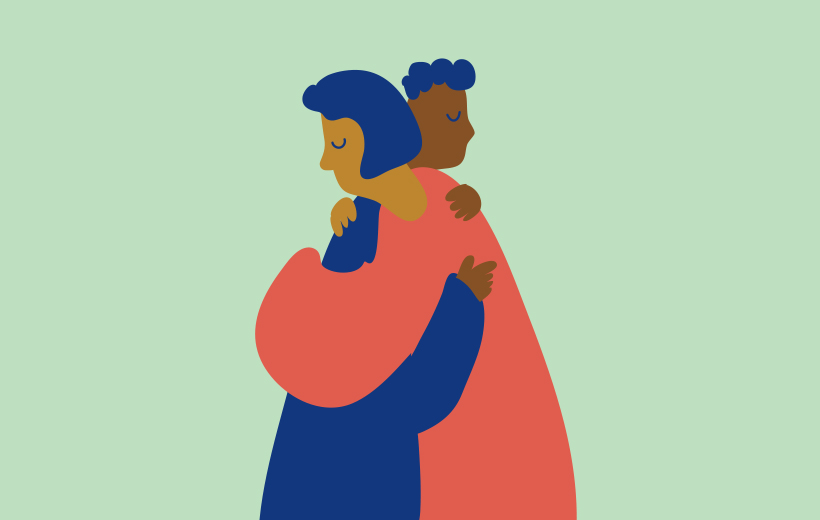The Science of Empathy and Compassion
By Cortland Dahl • 3 min read

Empathy and compassion, often thought to be closely related emotional responses, activate completely different networks in the brain, as found in research from the Max Planck Institute. This distinction has important implications for how we approach caring for others, particularly in caregiving professions.
Dr. Tania Singer’s pioneering neuroscience research used fMRI brain scanning to examine what happens when people experience empathy versus compassion. When participants experienced empathy, especially for others’ pain, their brains’ pain networks became active. This empathic response led to feelings of being overwhelmed and depleted — an experience often mislabeled as “compassion fatigue” in healthcare settings.
However, when participants were taught to shift from empathy to compassion — moving beyond just feeling others’ pain to actively wanting to help alleviate their suffering — they activated entirely different brain regions. These areas were associated with positive emotions, social connection, and reward networks — the same regions that activate when we experience joy or pleasure.
“While empathy-activated regions were associated with pain and negative emotions, leading to stress and anxiety, compassion-activated areas were linked to positive emotions, social affiliation, and reward.”
— Cortland Dahl
The physical manifestation of this difference was visible even before the brain scan data was analyzed. During empathy training, participants gradually became more distressed, hunching over with pained expressions in a self-protective posture. In contrast, when shifting to compassion, their posture straightened, their faces brightened, and they displayed more confidence.
Brain imaging revealed that these responses used completely non-overlapping neural networks — there wasn’t a single brain region in common between the empathic and compassion responses. While empathy-activated regions were associated with pain and negative emotions, leading to stress and anxiety, compassion-activated areas were linked to positive emotions, social affiliation, and reward.
This research suggests that what healthcare workers often experience isn’t actually compassion fatigue but empathy fatigue. When caregivers get stuck in empathic responses — simply feeling their patients’ pain — it becomes emotionally depleting. However, if they can shift to compassion — maintaining the motivation to help while not becoming overwhelmed by others’ suffering — caring for others can be energizing rather than exhausting.
Like any brain network, the compassion network strengthens with use. Research shows that through meditation and other practices, people can learn to activate this network more readily. Studies at the Center for Healthy Minds demonstrate that compassion training not only changes brain activity but also leads to more altruistic behavior, with participants showing increased kindness and support toward others.
This scientific distinction between empathy and compassion has important practical applications, particularly for those in caring professions. By understanding that compassion activates fundamentally different neural pathways than empathy, we can cultivate a more sustainable and energizing approach to caring for others, potentially reducing burnout while maintaining or even improving the quality of care we provide.
February 2025

Cortland Dahl is a scientist, Buddhist scholar and translator, and meditation teacher living in Madison, Wisconsin. He cofounded Tergar, a network of meditation centers with activities on six continents, with Yongey Mingyur Rinpoche.
.
Learn meditation under the skillful guidance of world-renowned teacher Yongey Mingyur Rinpoche at your own pace.


“Fifteen or twenty minutes of formal, seated meditation a day to anchor and develop your practice, and then – since you can’t always be sitting on a cushion in a nice quiet room — plenty of informal meditation throughout the day. Repeat as necessary…ideally, throughout your life!”

A new monthlong Joy of Living retreat in Portugal is helping meditators experience the full arc of Mingyur Rinpoche’s teachings — and the results are deeply inspiring.

“The approach and flying into Kathmandu along the edge of the Himalayas is spectacular,” Hughes said. This, along with Boudhanath, a Tibetan enclave in Kathmandu, are among his highlights.
If you enjoyed reading our articles, please join our mailing list and we’ll send you our news and latest pieces.